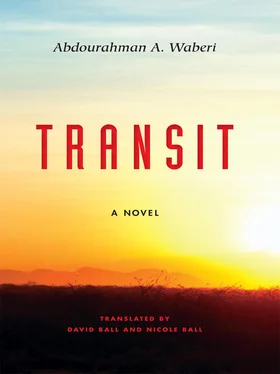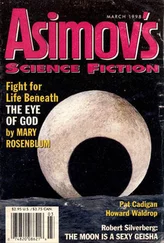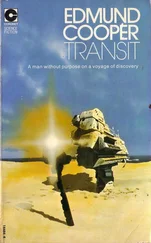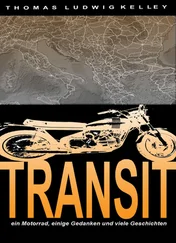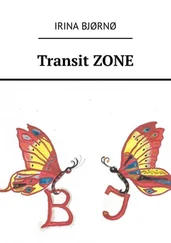My grandfather used to tell me a story he'd told Papa and the many cousins and grand-nephews. The family and the tribe are all mixed together. With us, the tribe is a compact crowd, a whole people. But before telling his story, all of a sudden he would be off, far away, as if he were on the Balbala bus. Then he would come back to the beginning and tell us his story. We would savor it like fresh milk from the udders of a cow. Grandfather was unpredictable. Grandpa, you're like those women who want to be loved right away, someone would say without raising his hand, like at the Muallim school. 1
“Do you know that the crazy planispheres of the fifteenth century put the earthly paradise — a paradise surrounded by flames, of course — on the exact spot where Abyssinia is located, that is, here in our country?”
And he would turn around and tell his story.
“I'm going to tell you the story right away. It's an old Arab tale. Zakaria Tamer of Syria cooked it up like a chef. One day in the Alep bazaar, a man bought two big eggs from a grocer. He was very hungry. He put an egg in each pocket, politely refusing the bag that the grocer held out for him. Once he got home, he ran to the kitchen and took out a plate and a frying pan. He broke the first egg against the second one. Out came a little chick all covered with down. Mad with rage, he was cursing the sly grocer who had deprived him of his omelet when suddenly his heart sank down to his feet, for the chick began to grow and soon took on the shape of a man with two wings, a pleasant face, and loose, white clothing. He took fright, invoked the name of The Unique, and dropped the second egg. Out came a chick all covered with down, who quickly grew and took the shape of a man who looked exactly like the first. What could he do, what could he say? He girded up his loins:
“‘Good God, who are you?’
“‘I am Munkir,’ said the first. ‘And he is Nakir.’
“Then he added, with authority:
“‘You must have heard of us. At your age, you certainly should have. We are the two angels who visit a dead person during the first night he spends in the grave in order to draw up the balance sheet of everything he has done on earth.’
“‘So why have you come? Can't you see I am not dead? Or do you want to tangle with me? I am a boxer, and in all of Alep and beyond, and even in Palmyra people know the force of my fists.’
“‘Do not be angry, brave boxer,’ said Munkir in a sincerely sorry voice. ‘There must be some mistake. Accept our apology.’
“And Nakir apologized sincerely to him, too. Then they both walked towards the door.
“‘Where are you going?’ cried the man, blocking their way.
“‘Much work still awaits us,’ answered Munkir.
“‘What about my eggs? Who's going to reimburse me for them?’
“‘Well, you see…’ stammered Nakir.
“‘It is quite simple. Pay me,’ suggested the hungry man.
“Munkir held up his arms:
“‘Search our pockets; we possess nothing. Nothing earthly, at least.’
“The man refused to let them go. He did not want to remain without food because of a mistake other people had committed, even if they were well-intentioned.
“‘Be reasonable, we have no money,’ begged Nakir.
“‘We could help you out a bit on Judgment Day,’ added Munkir.
“‘By overlooking some of your bad deeds,’ said Nakir.
“The man thought for half a minute and then reluctantly accepted. He pointed a firm forefinger at the angels:
“‘You give me your word as men?’
“The angels fluttered their wings in sign of protest.
“The man hastened to correct himself:
“‘I meant, your word as angels!’
“And the angels nodded and slipped away.”
1. Koranic school. — Translators’ note
CIVILIANS, they not happy with us cause of the patriotic contribution. The goverment, it put 27 percent of pay direct into its pocket to support the war. So goverment employees, they look at us mean. Me, I don't agree. It's not cause of draftees you got war they call civil. It's war that called up draftees. So let's get serious and not put the cart before the cow, right? And then, all the money they get don't go to draftees; first it go into the big guys’ pockets. Proof is, they all build big villa-chateaus like the president. Even goverment employee who's insignificant (that, estremely good word even), he wants a little villa-chateau same as big chief of the Republic. Me I don't give a shit about tears of lazybone employees, if they not happy they can go knock their head against the wall. Or else revolt, but that, I don't think so, cause of khat. Khat make you talk-talk, dream-dream, and then zero in the brainbox. Khat, it put body energy to sleep. Even men's thing there, it floppy like old chewed-chewed gum. So revolt not around the corner I'm telling you.
Aïdid, he don't agree with me. He say, revolution, it can come tomorrow. In Somalia, they kicked out Siyad Barre and they graze khat too but hey, less than Djibouti. Djibouti, great grazing champs after Yemenites. Yemenites, they close their eyes. They graze, graze, an graze. Sleep flee the eyes of Yemenites. Sleep forgot there are Yemenites on our nice little planet. After Yemenites, me I say second Djibouti, third Somalia, fourth Ethiopians. But Habashis don't graze, see, they drink buna* in the daytime and taji* at night. Aïdid no dope. He got a point. We can revolt like Somalians too, but wait, you gotta know how to stop a war. In Mogadishu, the asshole generals like Aïdid (not my buddy, the real chief who screwed the Americans and filmed American corpse pulled by kids and dragged all over town with women whooping — shame, for braggy Americans an Clinton!) and consorts, they been fighting for years. Not a good idea to do that too-too much here at home. Nice little revolt to correct things, OK. Anyways, it's all over for the asshole general of police, the one sleeping presently in the sinister Gabode prison. Next time it'll work, inshallah. And me, I'll have something to do with that business-there. But that still confidential top military secret.
LET'S NOT FORGET that we never accepted the domination of the colonizers. Even when faced with a fait accompli and the law of the strongest, we resisted silently, secretly.
Luckily, we had enough space to fall back on, unlike countries with greater population density like Burundi or Rwanda, where the Catholic church recorded its highest evangelization scores in the world. We could retreat into the brush, unseen and unheard. And above all, no official papers. Thus, what seemed to be the most generous acts of the administration, like the vaccination campaigns, were ignored if not massively rejected. Villages, schools, or cities — we rejected them. We preferred our rustic life.
But as time went on, those of us who had settled in little towns along the Djibouti-Addis Ababa railroad line got caught up in the game and first sent a little boy, some little orphan, to their school just out of curiosity. Then the youngest boy of the family, then the middle son, and finally the eldest, the keeper of the flock. But what could the children be doing all day? ventured the most skeptical. Faithful as the evening stars, they went to the same place every day, remaining seated, filling out little spiral notebooks with the district chief's stamp on them, and came back a few years later with a salary, without breaking their backs. Their fathers immediately opened up a store. From then on, they would rent out the donkey they used to lend. Little by little, they cut themselves off from their clan, spoke about their ancestors for no good reason, and were reluctant to give out alms. They shut themselves off from the others and saw only people like themselves, or passing foreigners like the nurse or the stationmaster, French from France or Greeks. And finally the truck driver replaced the camel driver, already threatened by the train.
Читать дальше
